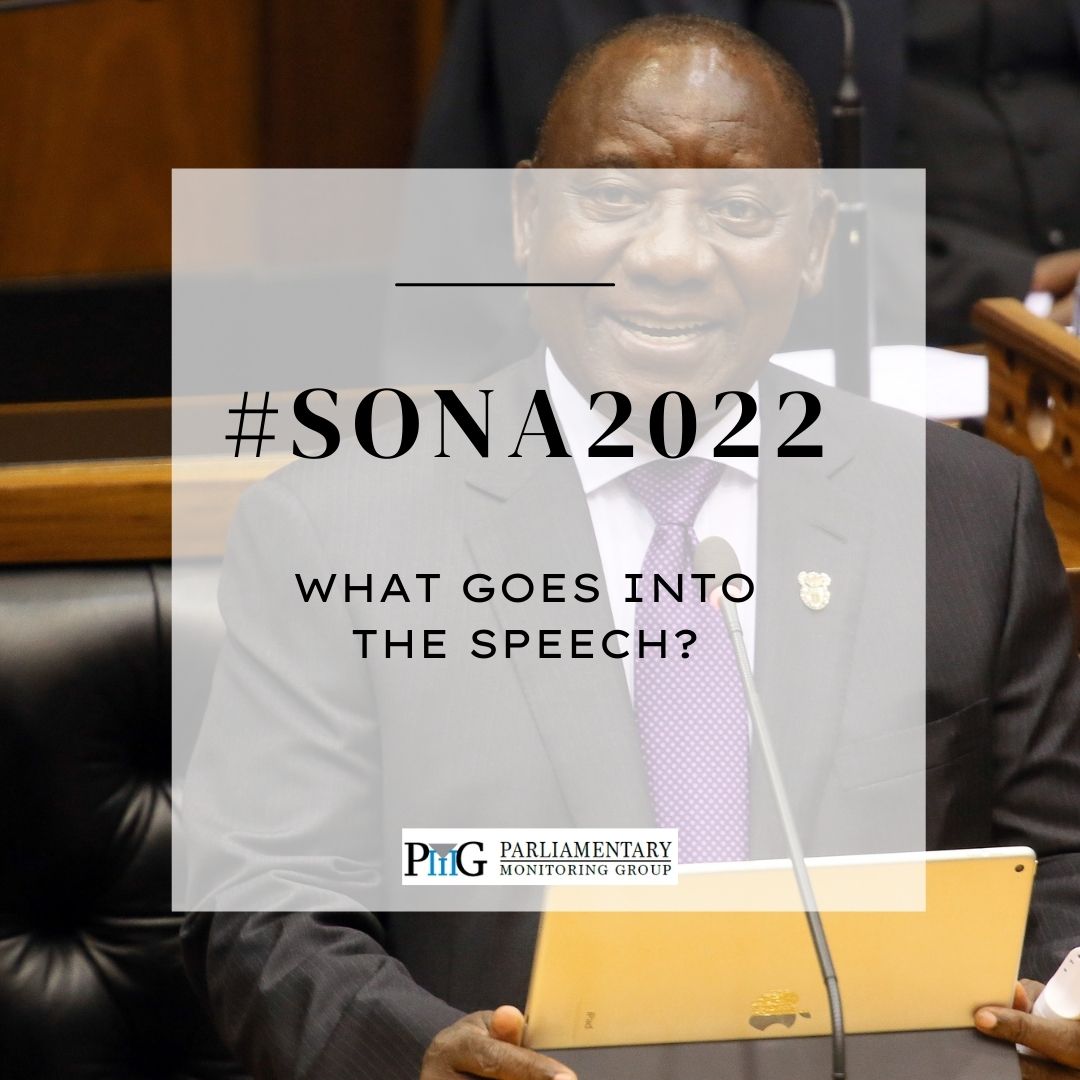SONA 2022: The Speech

It’s one of the most important speeches that the President delivers in any year. With a prime time tv audience, it is a tremendous PR opportunity for the President to lay out his agenda for the year and give a report back on government’s progress.
The tradition of giving a State of the Nation Address is rooted in the Joint Rules of Parliament, read together with the Constitution. Rule 7(1)(a) of the Joint Rules of Parliament states that the President may call a joint sitting of the Houses when it is necessary for the President to deliver the annual or a special address to Parliament.
Read All State of the Nation Addresses
The speech is the result of collaboration among a large number of officials in government - including policy advisors, researchers and speech writers – and outside advisors and thinkers.
The January Cabinet Lekgotla - which deliberates on government’s priorities for the year ahead – plays a central role in shaping the speech. This year, the President met with government leaders, including Ministers, Deputy Ministers, Premiers, Directors-General and leadership of the South African Local Government Association, as part of integrating and aligning government’s responses to challenges facing the country, particularly to urgently focus on addressing the triple challenges of poverty, unemployment and inequality.
Traditionally, meetings are also held with business leaders, labour and civil society prior to the event.
The prose in the state of the nation address is typically dull and some times jargon heavy as it is designed to be a sprawling, laundry-list type of speech. Poetry, inspirational and flowery language are in small doses.
Some Presidents go short and others long. Just like President Mbeki, President Ramaphosa’s speeches have averaged around 7000 words. President Mandela's speeches averaged around 6000 words and President Zuma 5000.
The target audience consists of different constituencies. This includes MPs, citizens, trade unions, business leaders, foreign investors, foreign governments and credit rating agencies.
Africa Check has been fact-checking state of the nation addresses for several years. According to them, President Ramaphosa has a good track record as his statements are mainly accurate. However, some promises and commitments are not always kept. Check here, here and here
What about the main talking points for this year? The ANC January 8th Statement provides a useful preview.
Following the conclusion of Cabinet Lekgotla, Cabinet spokesperson Phumla Williams said the President called on leaders to effect fundamental reforms to revive economic growth and create much-needed employment at a far higher rate.
The meeting also deliberated on challenges and progress in the fight against crime and corruption, and efforts to enhance public safety and security. It also discussed local government service delivery – including the provision of electricity, water and sanitation – as an important part of building the capacity of the State.
Millions will be tuning in to hear if the President talks to the actual challenges facing the county and provides solutions to fix them.
About this blog

"That week in Parliament" is a series of blog posts in which the important Parliamentary events of the week are discussed.
We host the latest posts of this blog, written by People's Assembly. You can find more on PA's blog.
About this blog

"That week in Parliament" is a series of blog posts in which the important Parliamentary events of the week are discussed.
We host the latest posts of this blog, written by People's Assembly. You can find more on PA's blog.
